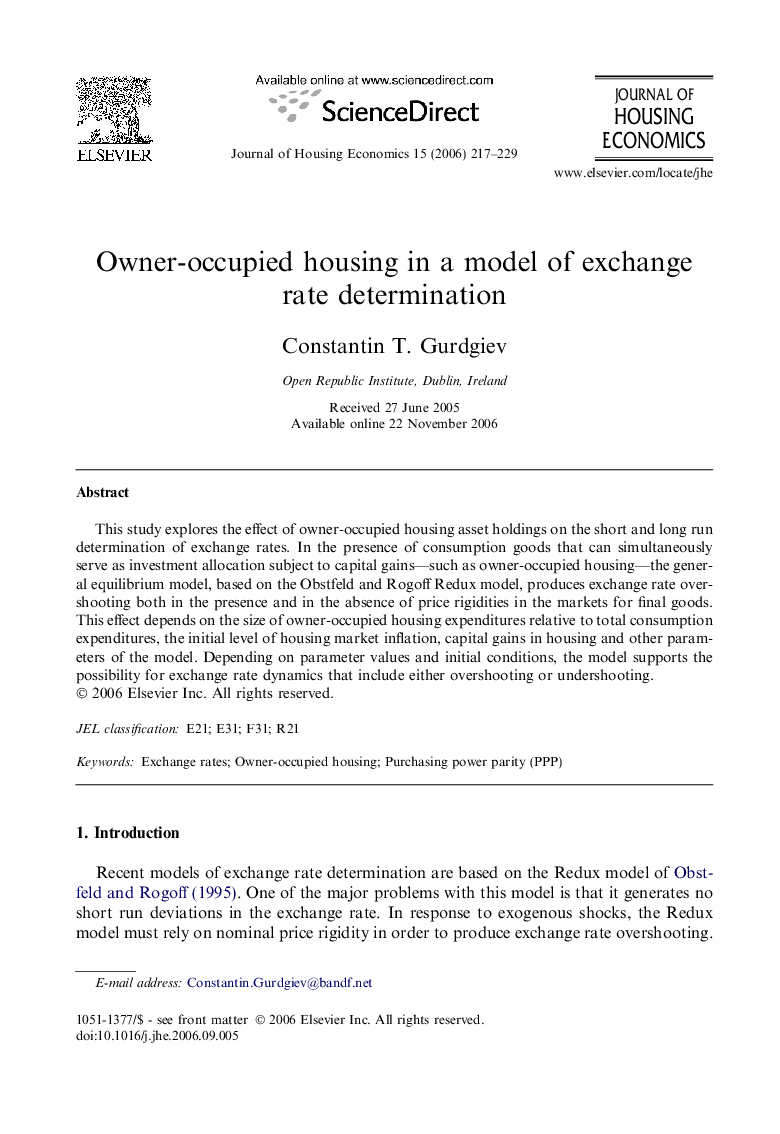| Article ID | Journal | Published Year | Pages | File Type |
|---|---|---|---|---|
| 962265 | Journal of Housing Economics | 2006 | 13 Pages |
Abstract
This study explores the effect of owner-occupied housing asset holdings on the short and long run determination of exchange rates. In the presence of consumption goods that can simultaneously serve as investment allocation subject to capital gains-such as owner-occupied housing-the general equilibrium model, based on the Obstfeld and Rogoff Redux model, produces exchange rate overshooting both in the presence and in the absence of price rigidities in the markets for final goods. This effect depends on the size of owner-occupied housing expenditures relative to total consumption expenditures, the initial level of housing market inflation, capital gains in housing and other parameters of the model. Depending on parameter values and initial conditions, the model supports the possibility for exchange rate dynamics that include either overshooting or undershooting.
Related Topics
Social Sciences and Humanities
Economics, Econometrics and Finance
Economics and Econometrics
Authors
Constantin T. Gurdgiev,
